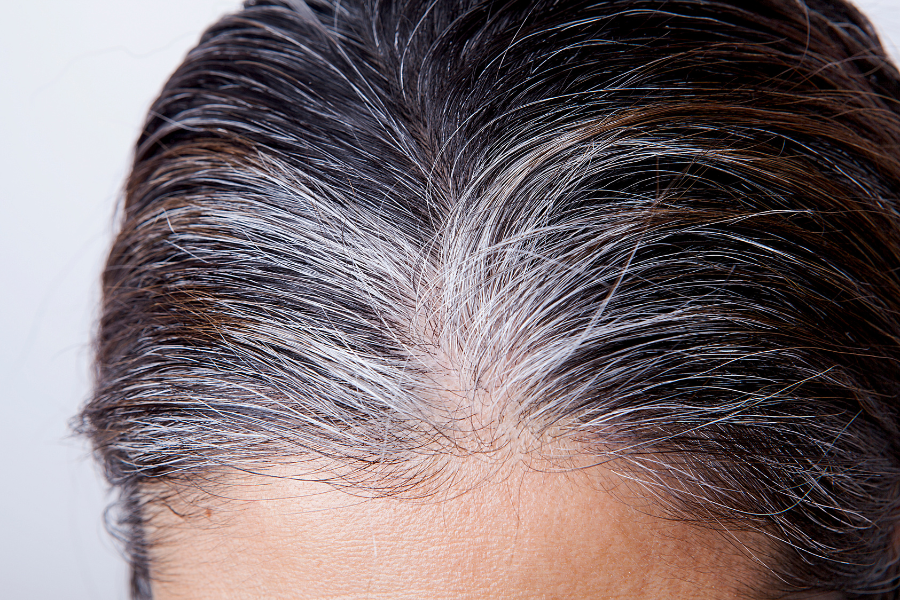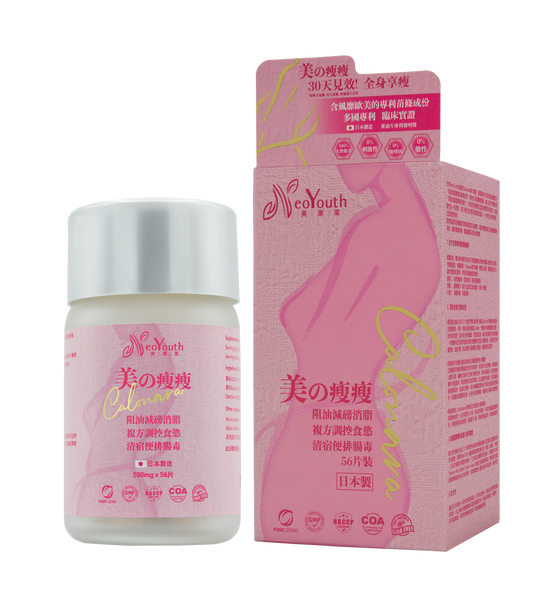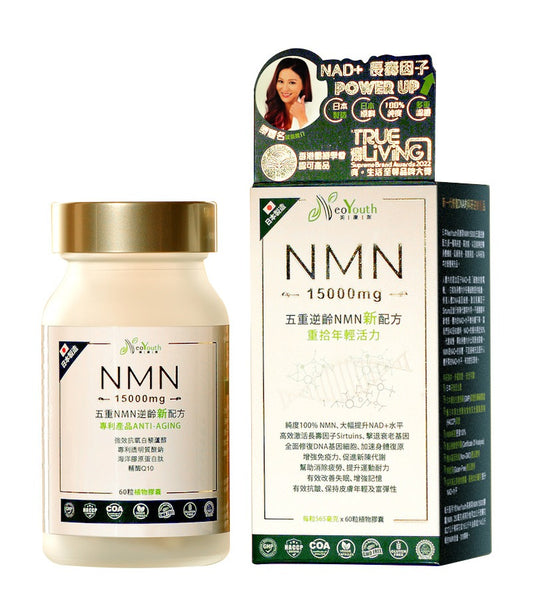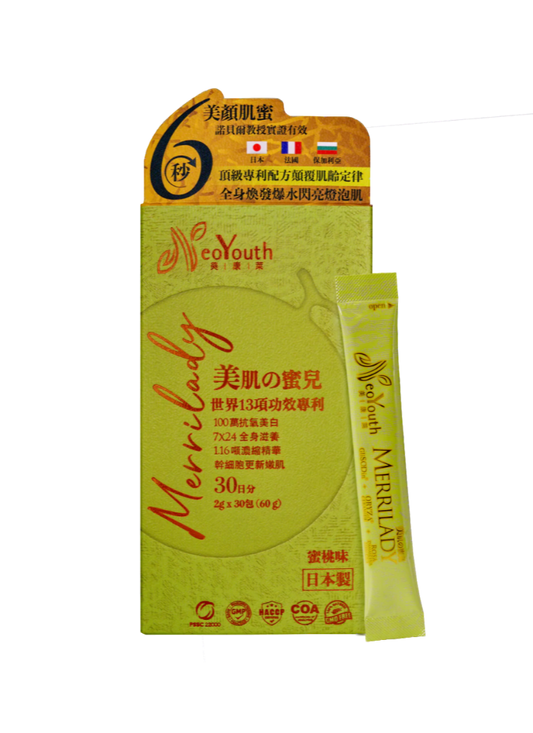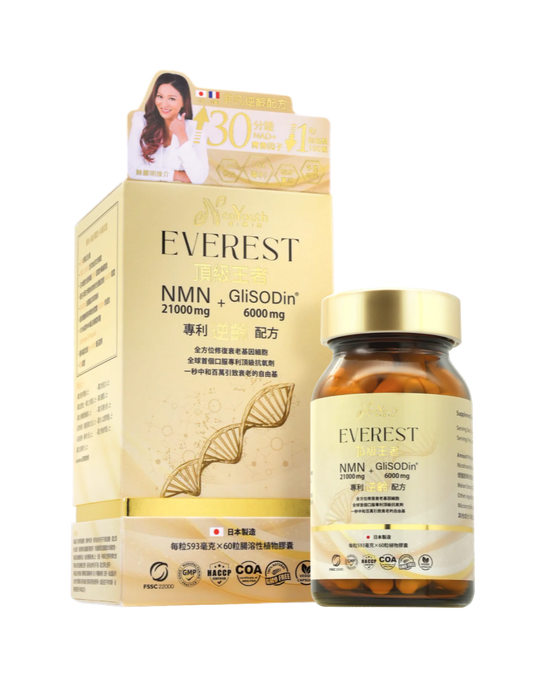Gray hair is considered a natural phenomenon of aging, but if teenagers or young adults in their twenties have noticeable gray hair, it is called "premature graying." This not only makes them look much older than their actual age but also raises concerns about their health. Premature graying is not only related to genetics but can also be caused by lifestyle habits and environmental factors. This article will explore the causes of premature graying and how to deal with the problem, and recommend hair care products to improve gray hair.
Genetics is not the only cause of premature graying. A list of causes of premature graying.
Many people believe that premature graying of hair is caused by genetics, but in fact, there are many reasons for premature graying of hair, including:
Genetic
If there are elders in the family who developed premature gray hair, the chances of young people developing gray hair at a young age increase significantly. This is because the activity and lifespan of hair melanocytes are partly determined by genes. If parents or grandparents have similar conditions, the next generation of young people is more likely to inherit premature graying and develop gray hair at a young age. In this case, even without the following factors, gray hair may still appear at a young age.
Life stress
Modern life is fast-paced, and stress from studies, work, and interpersonal relationships can easily accumulate. Prolonged stress causes the body to secrete large amounts of stress hormones (such as cortisol). These hormones affect the activity of hair follicle stem cells, causing them to enter a dormant state or prematurely die, thus reducing the number and function of melanocytes. This is one of the common causes of premature graying of hair. Studies have also found that stress accelerates the production of free radicals, further damaging melanocytes and causing hair to turn gray prematurely.
Unbalanced diet
Healthy hair requires a variety of nutrients, especially B vitamins (such as B12 and folic acid), iron, zinc, and copper. These nutrients are involved in the synthesis of melanin and the metabolism of hair follicle cells. Long-term unbalanced diets, dieting, improper vegetarianism, or a diet that is too monotonous can easily lead to malnutrition. Melanocytes cannot function properly, causing hair to lose its color and turn gray.
Sleep deprivation
Sufficient sleep aids in bodily repair and cell regeneration. Prolonged periods of staying up late or poor sleep quality impair the body's repair functions, preventing hair follicles and melanocytes from receiving adequate rest and repair, thus accelerating aging and causing premature graying. Sleep quality also affects hormone secretion, indirectly impacting hair health. The high academic pressure and insufficient sleep among today's youth is a significant and undeniable cause of premature graying.
health status
Certain diseases can directly or indirectly affect the function of melanocytes. For example, thyroid dysfunction (hyperthyroidism or hypothyroidism), autoimmune diseases (such as vitiligo and alopecia areata), and anemia can all damage or reduce melanocytes, leading to graying hair. In addition, long-term chronic diseases or physical weakness can also affect the nutrient supply to the hair, increasing the risk of gray hair.
Unhealthy lifestyle habits
Smoking constricts blood vessels, reducing blood circulation to the scalp, affecting nutrient supply to hair follicles, and causing melanocytes to age prematurely. Excessive alcohol consumption increases free radicals in the body, damaging cell health. A diet high in sugar, salt, fat, or processed foods accelerates cell aging and affects melanin synthesis. Lack of exercise slows down metabolism, impacting hair health. Furthermore, chronic sleep deprivation and irregular sleep patterns exacerbate these negative effects, contributing to premature graying of hair.
Environmental factors
Modern cities suffer from severe air pollution. Harmful substances in the air, such as heavy metals, pesticides, and chemicals, can enter the body through the skin or respiration, damaging melanocytes. Long-term exposure to polluted environments and frequent contact with hair dyes or chemicals also increase the risk of hair turning gray.
Other factors
Some medications (such as chemotherapy drugs), drastic weight loss, and hormonal changes (such as puberty, pregnancy, and menopause) can also affect melanocytes, leading to premature graying.
As can be seen, the causes of premature graying of hair in teenagers are very complex, including genetics, stress, nutritional deficiencies, poor sleep, and health problems. The appearance of any of these symptoms may be a warning sign of underlying health issues that must be addressed.
How to deal with gray hair? 4 tips to slow down gray hair growth.
Regarding how to deal with premature graying, methods can be divided into daily conditioning and improving lifestyle habits to help delay or reduce the appearance of gray hair. Please feel free to refer to the following suggestions:
Maintain a balanced diet
Adequate vitamin and mineral supplementation can help improve hair health. For example, essential nutrients such as B vitamins, vitamin E, and iron can help promote melanin synthesis and delay the appearance of gray hair. In addition, it's important to consume plenty of nutritious foods such as dark green vegetables, whole grains, nuts, and lean meat.
Management pressure
Stress is a major cause of premature graying. Proper stress management, such as meditation, deep breathing, and exercise, can help the body release stress and balance mental and physical health. Good stress management can reduce hormonal fluctuations and prevent premature graying.
Improve lifestyle habits
Maintaining a regular sleep schedule, avoiding staying up late, reducing smoking and drinking, going to bed early and waking up early, and engaging in appropriate exercise can help improve hair and overall health.
Hair care
Proper hair care involves reducing the use of excessive chemical products such as hair dyes and styling products to avoid irritating hair follicles. Additionally, regular shampooing and gentle scalp massage can help promote blood circulation and improve scalp health.
The treatment of premature graying should focus on health conditioning and nutritional supplements, adjusting diet, lifestyle habits, and managing stress to effectively solve the problem of premature graying.
How to more effectively treat premature graying? We recommend Everest NMN 21,000mg + GliSODin® 6,000mg from Japan.
NeoYouth EVEREST, a revolutionary dual-formula product from Japan, comprehensively repairs aging genes and cells. It has received research certifications from multiple authoritative institutions and universities in the United States and Japan, demonstrating its ability to repair DNA damage, repair aging cells, brighten and smooth skin, and effectively reduce the appearance of premature gray hair. Furthermore, the application of NeoYouth EVEREST on humans has been publicly affirmed by Harvard University, NASA, and the University of Washington, and has been continuously certified by at least three major international authoritative journals. Clinical observations have proven that while physiological or functional reversal occurs, no adverse health problems have been generated.
NeoYouth EVEREST, a premium product from Japan , is the culmination of modern anti-aging research. It combines NMN (β-nicotinamide mononucleotide) and GliSODin®, a patented French melon extract "super enzyme SOD," to maintain peak physical condition. EVEREST products are 100% pure, with authoritative certification, and are the world's first oral patented premium antioxidant with a revolutionary dual anti-aging formula, effectively addressing premature graying.
Premature graying of hair is closely related to genetics, but it's not the only cause. Having learned about the causes of premature graying, how to treat it, and how to improve it, we can start by improving lifestyle habits and supplementing with nutritional products to address the issue. If you have any questions about Everest NMN 21,000 mg + GliSODin®️ 6,000 mg from Japan, please feel free to contact us.

